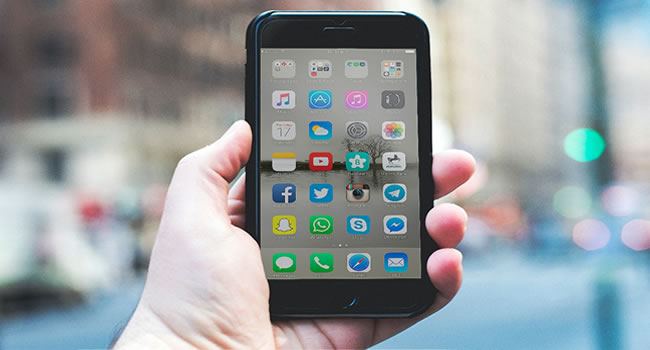Tech
How to Make Your Smartphone Your Main Business Tool

Ever since the ‘Bring Your Own Device’ (BYOD) phenomenon emerged during the last decade, the ever-evolving smartphone has become a primary business tool in the digital age.
It has proved to be a transformative tool too, from the ability to respond to and send emails in real-time to trading forex and its surrounding 24-hour market.
But what are the pros and cons of using your smartphone as a prominent business tool, and which apps (or programs) enable you to work with genuine efficiency?
Leveraging Tools and the Advantages of Smartphones
Smartphone penetration rates are rising across the globe, including in developing economic regions such as Africa.
In fact, Sub-Saharan Africa is the world’s fastest growing mobile phone market, and one that’s expected to achieve a CAGR of 4.6% (compared with 3% globally) in the coming years.
Of course, the emergence and constant sophistication of smartphones has also given risen to affiliated markets, such as the one that underpins mobile apps.
This global marketplace was valued at $154.05 billion in 2019, and has been projected to grow at a compound annual growth rate (CAGR) of 11.5% between now and 2027.
Thanks to the growth and diversification of this market, entrepreneurs have been able to access a broadening range of purposeful business apps in recent times. These can help them to seamlessly manage every element of modern-day business too, from social media and digital marketing to email distribution.
For example, the paid Buffer app can help you to manage multiple social streams (including Facebook, Twitter and LinkedIn) through a single interface, while MailChimp has become the market leader for organising email campaigns and adding new subscribers.
The combined growth of smartphone and mobile app markets has made it theoretically possible for business owners of all descriptions to run their ventures while on the move, while also creating more flexible working directives for employees.
Are There Any Cons to be Aware Of?
Of course, there are some potential downsides to managing your business through a smartphone, particularly as this blurs the lines between personal and professional lives.
Initially, this may make it easier to get distracted by personal messages and social media feeds, making it hard to concentrate and remain focused on the tasks in hand.
Over time, the seemingly endless bombardment of messages and notifications can also become overwhelming, making it hard to create a viable work-life balance and optimise your mental wellbeing.
There are ways to combat this, with one of the most effective being to utilise a dedicated handset for business and keeping your personal phone completely separate.
However, it’s important to be aware of the risks at all times, and try to create a fixed working schedule that allows you time to rest, recuperate and turn off those pesky notifications.
Apps can also help in this respect, by streamlining and even automating some processes (particularly accounting and file distribution).
Join the conversation
Support Ripples Nigeria, hold up solutions journalism
Balanced, fearless journalism driven by data comes at huge financial costs.
As a media platform, we hold leadership accountable and will not trade the right to press freedom and free speech for a piece of cake.
If you like what we do, and are ready to uphold solutions journalism, kindly donate to the Ripples Nigeria cause.
Your support would help to ensure that citizens and institutions continue to have free access to credible and reliable information for societal development.
























